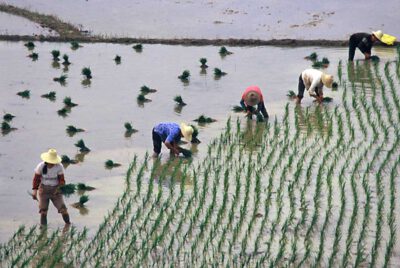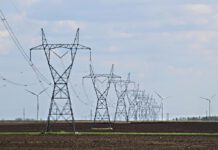
© Yifei ZHANG / WWF
Beijing – Africa and China can work together towards the common goal of sustainable development, says WWF, the global conservation organization.
The upcoming China-Africa Ministerial Conference, in July 2012, presents a key opportunity to make China’s trade and capital flows a driving force for global footprint reduction and green growth in Africa a possible future. Ahead of the Conference, WWF puts forward proposals to interject environmental and social considerations in the ever growing and expanding China-Africa relationship.
“In recent years China’s outward investments have grown at a fast pace particularly in Africa and the trend continues,” said Dr. Li Lin, Deputy Country Representative at WWF China. “Investing in sustainability is fundamental for both Africa and China’s long-term prosperity. It is in both China’s and Africa’s interests that high environmental standards are part of the aid, trade and investment portfolio of China in Africa, positively influencing China’s footprint in the continent.”
WWF’s proposals target three major sectors: financial cooperation, extraction of natural resources and clean energy.
A commitment to fully implement the green lending guidelines recently issued by the China Banking Regulatory Commission for loans and investments would significantly reduce risks while at the same time bring benefits to the environment and local economies. WWF encourages organisation of specific trainings on the guidelines for branches of Chinese banks in Africa to help ensuring that environmental and social risks often associated with infrastructure and extractive projects are properly assessed and mitigated.
With regard to extraction of natural resources, WWF encourages development of guidelines – including “no-go zones” – for companies in environmentally sensitive sectors such as mining. The forestry guidelines issued in 2009 by China’s Ministry of Commerce and the State Forestry Administration for Chinese companies operating overseas in this sector are a stepping-stone towards international certification.
WWF believes that Africa will not reach its full development potential without clean, affordable and reliable energy services. China has the potential to share its experience of providing renewable energy to rural communities (such as clean energy cook stoves), helping Africa gain access to clean energy sources for millions of people while improving health and reducing deforestation related to use of charcoal.
“While capitalising on growth opportunities, it is necessary to build economies that manage natural capital wisely to ensure security and stability, and to protect unique ecosystems such as the Congo Basin and the coast of East Africa upon which millions people depend for their livelihood,” said Laurent Somé, Director of External Relations and Partnerships at the WWF Africa Programme.
The 5th Ministerial Conference of the Forum on China-Africa Cooperation (FOCAC), the most important platform for Sino-African relations, will take place in Beijing in July 2012. At the event, China and 49 African countries will define principles and commitments for Chinese investments and cooperation with Africa in the coming three years.
The WWF Briefing Note “Africa & China: cooperation for sustainability” is available at http://awsassets.panda.org/downloads/wwf_briefing_note_africa_china_cooperation_for_sustainability_en_1.pdf.
WWF – World Wide Fund For Nature
wwf.panda.org








